IN THE THIRD JUDICIAL CIRCUIT OF FLORIDA
Administrative Order No.
2019-009
IN RE:USE OF ELECTRONIC DEVICES IN COURT FACILITIES
WHEREAS, Florida Rule of Judicial Administration 2.45l(c)(2) provides that the “use of electronic devices in a courthouse or court facility is subject at all times to the authority of the chief judge to (A) ensure decorum and prevent distractions; (B) ensure the fair administration of justice; and (C) preserve court security”; and
WHEREAS, “[C]ourthouses and courthouse grounds (with the exclusion of perimeter public sidewalks) have uniformly been treated as nonpublic forums for purposes of First Amendment analysis,”[1] which permit governmental restrictions that are reasonable and viewpoint neutral; and
WHEREAS, within the Third Judicial Circuit Court facilities, a danger occurs when recording by electronic devices captures security features, sensitive or protected witnesses and litigants, and jurors or potential jurors; and
WHEREAS, the regulation of cellular telephones and other electronic devices is within the Court’s inherent authority to take supervisory and administrative actions necessary to implement its judicial functions; and
WHEREAS, the Third Judicial Circuit recognizes the increasing use of mobile devices for business purposes and the trend towards “paperless” offices, but proper decorum is required in all courtrooms and court proceedings; and
WHEREAS, the overall purposes of this Administrative Order are to ensure the overall safety and security of the court facilities and its occupants; secure litigants’ rights to a fair and impartial proceeding; preserve the dignity of the proceedings; and provide the public, attorneys, and members of the media access to the proceedings; and
WHEREAS, by the authority vested in me as the Chief Judge of the Third Judicial Circuit and, specifically, rule 2.451(c)(2);
It is therefore ORDERED:
- PROHIBITIONS
- Due to the risk to existing security measures, it is necessary to prohibit members of the general public from using electronic devices to record inside any courthouse[2] and areas of judicial or inmate egress and ingress within the Third Judicial Circuit absent specific permission by the Chief Judge. Electronic recording shall include taking photographs, filming, videotaping, audiotaping, broadcasting, and telecasting; and includes devices such as portable television cameras, still cameras, cellphone cameras, audio equipment, and any other device capable of taking a photo, making a record, or transmitting a broadcast.
- Members of the public also may not use or display cellular telephones, laptops or other portable devices in any courtroom[3] or during any court proceeding. All such electronic devices must be turned off or placed in silent mode and shall not be used, viewed, or otherwise displayed while in any courtroom.
- Electronic devices such as two-way radios, police scanners, signal jammers, or other similar devices are prohibited in all Third Judicial Circuit Court facilities.
- USE OF CELLPHONES, LAPTOPS, & OTHER PORTABLE DEVICES
- The operation of any permitted devices in a courtroom must be in a manner that does not disturb or disrupt the proceedings or distract the participants. Only laptop computers or similar devices with virtual or silent keyboards are permitted and they must operate on battery power. Cabling of extension cords and power supplies is prohibited in the audience area of courtrooms.
- Pro se litigants and Attorneys: Attorneys and litigants representing themselves may use a laptop computer or other portable electronic device when their case is in session and they are actively participating in the proceeding. The transmission of materials on a computer to other peripheral devices also in use during the proceeding, and specifically in advancement of the proceeding, is permissible. For example, the transmission and display of a power point presentation is allowable. No cellular phone, computer, or other device can be used to record or send photographs, videos, or audio recordings.
- Attorneys: Unless otherwise ordered by the presiding judge, attorneys, including those who are not the attorney of record, may utilize cellular telephones, laptop computers, or other electronic devices for texting, research and writing, checking calendars, emailing, and to perform other related tasks when seated in the well of the courtroom or during lengthy calendar calls while awaiting their cases to be called.
- Media: Members of the media exhibiting appropriate media credentials or identification supplied to them by their employer may utilize cellular telephones, laptop computers, or similar electronic devices for texting, organizational functions, research and writing, and other data transmission functions. Media representatives may use laptop computers or similar electronic devices provided the devices operate silently on the user’s lap and do not require additional seating space. A presiding Judge may exclude laptop computers or similar devices or other portable electronic devices from the courtroom. This does not alter or impede the technological coverage of judicial proceedings by members of the media as permitted under Florida Rule of Judicial Administration 2.450.
- Court Employees & Certain Contractual Vendors: Court employees and certain contractual vendors including but not limited to interpreters, court reporters, court technology personnel, and in-court clerks may use cellular telephones, laptop computers, and other portable electronic devices for texting, organizational functions, research and writing, and other data transmission functions in the course of their official duties. In rare instances, with the permission of the presiding Judge, a court employee may use a cellular telephone to make or receive telephone calls while in the courtroom.
III. EXCEPTIONS
- Any member of the general public who seeks to electronically record in prohibited areas of any Third Judicial Circuit court facility must apply, in writing, for permission from the Chief Judge or designee. The designated form, Request for Electronic Recording by the Public, is attached.
- The Sheriff’s Office in each county shall designate an area outside the courthouse for the exercise of First Amendment activities including peaceful protests. This area must not interfere or block any entrance or exit. Upon request, court deputies will direct citizens to those designated locations.
- Nothing in this Administrative Order is intended to apply to persons who require electronic devices (or services requiring the use of electronic devices) under the Americans with Disabilities Act except that electronic devices cannot be used to record or send photographs, video, or audio during a proceeding unless specifically approved by the presiding Judge.
- This order shall in no way abrogate or amend any rules of court, including Florida Rules of Judicial Administration 2.450 (Technological Coverage of Judicial Proceedings) or 2.451 (Use of Electronic Devices); Florida Rules of Traffic Court 6.460 (Evidence); etc.; and all applicable Administrative Orders.
- SANCTIONS
- Any person who violates this order by recording without permission shall immediately comply with a request to cease recording or be escorted out of the court facility. Individuals escorted out are not permitted to return until such time as that person is no longer in possession of any electronic and/or recording devices. If a person is escorted out of a Third Judicial Circuit court facility pursuant to this order, that action shall not excuse the person from failing to appear in court as required.
- Any person who violates this order by recording during a court proceeding shall immediately comply with court deputy instructions to cease. Violating this Administrative Order may result in forfeiture of a cellular telephone or other electronic device. If court deputies remove any device from a person pursuant to this Administrative Order return of the device shall be at the presiding Judge’s discretion. If the conduct continues, the presiding Judge can direct the person be removed from the courtroom.
- Anyone violating this Administrative Order may face contempt proceedings and/or other sanctions as permitted by law. Media representatives failing to abide by this Administrative Order may be precluded, in the future, from using portable electronic devices during court proceedings.
This Administrative Order shall become effective immediately and must be posted near the security checkpoint or entrance of each court facility in the Third Judicial Circuit.
ORDERED in Columbia County, Florida, this day of September 2019.
[1] Schmidter v. State, 103 So. 3d 263, 270 (Fla. 5th DCA 2012) (citing U.S. v. Grace, 461 U.S. 171, 177–79, (1983); Huminski v. Corsones, 396 F.3d 53, 90–91 (2d Cir. 2005); Sammartano v. First Judicial Dist. Court, 303 F.3d 959, 966 (9th Cir. 2002); and Comfort v. MacLaughlin, 473 F. Supp. 2d 1026, 1028 (C.D.Cal. 2006)).
[2] Courthouse also includes any court facility (i.e., Suwannee County Judicial Annex) and any office or room inside a courthouse (including other government agencies).
[3] As used herein, “courtroom” includes courtrooms, hearing rooms, and any other places utilized for judicial proceedings.
All Third Judicial Circuit Judges and Judicial Assistants
All Third Circuit Sheriffs
All Third Judicial Circuit Clerks of Court
Third Circuit Bar Association (for distribution among membership)
Third Circuit Staff

